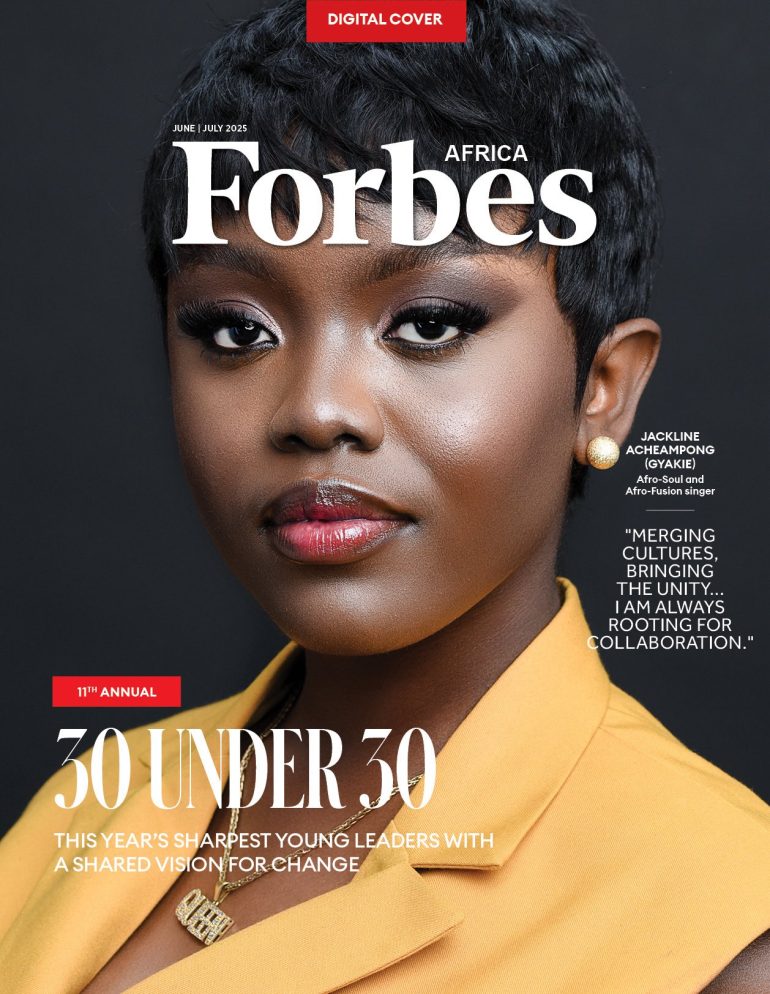From the moment her 2020 single Forever became a continental hymn, it was clear that Jackline Acheampong was operating on a different frequency. The song did more than just launch a career. It offered a blueprint for a different kind of Ghanaian pop star, one whose power wasn’t in explosive rhythms but in the unshakable pull of her emotional honesty.
Her recent appearance on the cover of Forbes Africa’s 30 Under 30 list feels less like a sudden arrival and more like an affirmation. It is a quiet confirmation of a journey that has been unfolding with deliberate intention all along.
This recognition is significant, not just as a personal milestone, but as a marker for a specific feeling gaining ground in West African music. In a landscape often defined by the high-octane pulse of Afrobeats, Gyakie’s work occupies a space that is softer and more introspective, deeply rooted in the classic sensibilities of R&B. Her music is built for late-night drives and solitary moments, creating a sound that connects through feeling as much as melody.
Following the whirlwind success of Forever and its Omah Lay-assisted remix, the predictable path was to chase another viral moment. Gyakie chose patience instead. Projects like her EPs, SEED and My Diary, showed a commitment to building a world around her artistry. On tracks like Something and Flames, she explores desire and self-worth with a steady hand, carefully expanding her sound without abandoning its core.
This deliberate pacing is central to her appeal. Gyakie’s career subverts the industry’s demand for constant, high-volume output. She presents an alternative model for young artists, particularly women, navigating the global streaming ecosystem. Her power isn’t performative; it’s inherent in the quality of her work. She doesn’t need to shout to be heard. The stillness in her music is what draws you in.
Her public image aligns perfectly with this musical ethos. Free from the pressure of chasing trends, Gyakie’s style is elegant and self-contained. It is a visual representation of her artistic identity: confident, aware, and grounded. It’s a form of soft power, one that persuades through genuine connection rather than loud command, offering a different way for West African women to see themselves reflected in the global pop sphere.
The Forbes cover, then, is a snapshot of this slow-burning influence. It’s a recognition of a career being built on Gyakie’s own terms, brick by brick. It validates the idea that in the modern African music scene, there is more than one path to the center. For Gyakie, the journey has always been about proving that vulnerability is a strength, and that the quietest voices often leave the most lasting impression.


